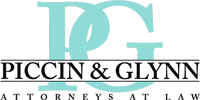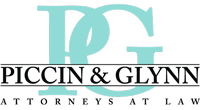
Product recalls happen all the time. In fact, Publix just recently issued a recall for its popular tropical fruit medley mix throughout Florida and a few other states. According to NBC Miami, the voluntary recall was issued due to suspicion that some fruit medley mixes may contain listeria, a foodborne disease-causing bacteria that can cause serious and sometimes fatal infections. The recalled product has reportedly been removed from all store shelves and customers who already bought the product can return it for a full refund. Fortunately there have not yet been any reported cases of illness thought to be attributable to the recalled fruit mix, but what if there were? Would the fact that the product had been recalled impact Publix’s liability in a resulting product liability lawsuit? Read on to find out.
Product Recalls and Liability
A product is generally recalled because the manufacturer, or a government body, has discovered that the product is unexpectedly dangerous for some reason and is likely to harm consumers. Most product recalls are voluntarily issued by manufacturers, but does issuing a voluntary recall mean that the manufacturer is admitting fault? In other words, if a manufacturer publicly acknowledges that their product may be defective can they automatically be held liable for injuries that their product causes? In a nutshell, no. Issuing a recall is not the same as admitting fault and issuing a recall does not automatically make a manufacturer liable. However, the fact that a recall was issued can often be presented in court as evidence to help prove the product at issue was defective. Please note that evidence of a recall alone will almost never be sufficient to establish that the recalled product was defective. Additionally, proving that the product was defective is just one of the elements that a product liability plaintiff (i.e. the injured party who is suing) must be able to prove in order to win their case.
The Elements of a Product Liability Case
Product liability lawsuits in Florida can be very complicated, but in most cases the injured plaintiff must be able to prove each of the following four elements in order to prevail:
- The product was defective – The plaintiff must be able to show that the product was either defectively designed, defectively manufactured, or that the product was unreasonably dangerous because the manufacturer failed to include adequate warnings or instructions.
- The product was the proximate cause of the plaintiff’s injury – Next, it must be established that the defective product proximately caused the plaintiff’s injury.
- The product was used as intended – Furthermore, the plaintiff must be able to show that they were using the product in the way that it was intended to be used, or in a way that the manufacturer could have reasonably anticipated that a consumer would use it, when the injury occurred.
- As a result the plaintiff suffered a compensable loss – Lastly, the plaintiff must show that as a result they suffered an actual loss due to the defective product.
Reach Out to Us Today for Assistance with Your Case
Here at Piccin & Glynn, Attorneys at Law, our team of experienced personal injury lawyers are committed to protecting the rights of injured individuals who have been injured by dangerous products. If you live in Florida and have questions about filing a product liability lawsuit we would be happy to meet with you during a free initial consultation, simply give us a call today toll free at 352-558-8480 or fill out our online contact form.
Resource:
nbcmiami.com/news/local/Publix-Recalls-medley-mix-428859813.html

